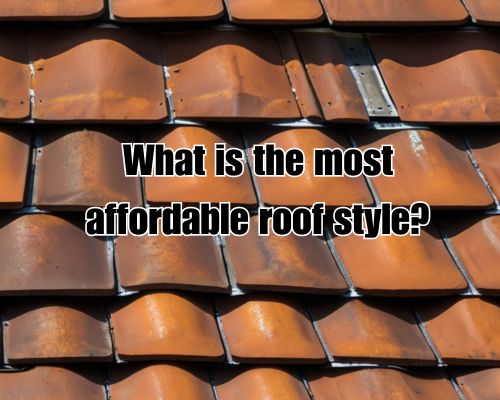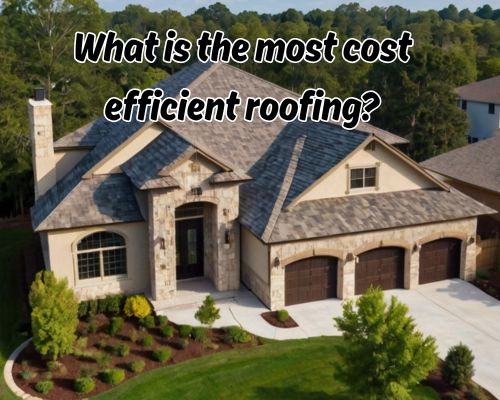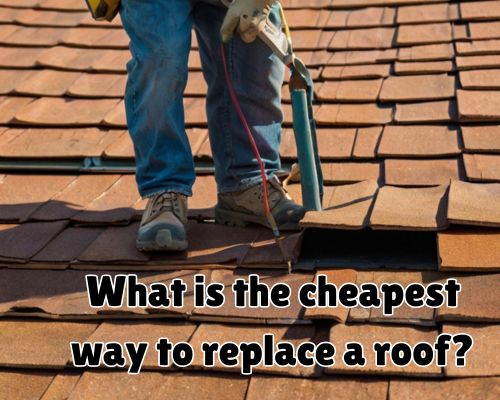What Is the Most Affordable Roof Style? A Practical Guide for New Jersey Homeowners
When planning a roofing project in New Jersey, one of the most common and budget-driven questions homeowners ask is: What is the most affordable roof style? With the state’s diverse weather—ranging from snowy winters in the north to humid summers along the Jersey Shore—your roof needs to be both cost-effective and durable. With CJ Commercial Roofing NJ, we will explore the most affordable roofing styles, their pros and cons, pricing, and why they work well in New Jersey’s climate.

Understanding Roof Styles and Affordability
Roof “style” refers to the structural shape and design layout of the roof—not just the material used. While material costs often take center stage, the shape and structure of the roof itself dramatically affect labor, material waste, insulation options, drainage, and even long-term maintenance costs.
When evaluating affordability, we need to assess:
- Installation cost
- Material waste during construction
- Maintenance expenses
- Energy efficiency and insulation capabilities
- Lifespan and durability in New Jersey’s climate
The Most Affordable Roof Style: The Gable Roof
After considering all key factors, the gable roof consistently emerges as the most affordable roof style for homes across New Jersey.
✅ What is a Gable Roof?
A gable roof features two sloping sides that meet at a ridge in the middle, forming a triangular shape at each end. This simple, symmetrical design is sometimes called a “pitched roof” or “peaked roof.”
Why Gable Roofs Are Budget-Friendly in New Jersey
1. Simplicity of Design = Lower Labor Costs
Gable roofs are straightforward to construct. Unlike hip roofs or mansard roofs, they don’t require complex angles or additional framing. This reduces installation time and minimizes labor costs—especially important in states like New Jersey, where hourly roofing labor rates average between $50–$90/hour in cities like Newark, Trenton, and Cherry Hill.
2. Efficient Use of Materials
The simplicity of gable roofs results in less material waste. Contractors can optimize cuts and ordering, which helps keep material costs low. This is especially advantageous when using asphalt shingles—the most common roofing material in New Jersey—due to their modular sizing.
3. Excellent Drainage for Rain and Snow
New Jersey’s climate demands a roof style that can handle heavy snowfalls and frequent rainstorms, especially in northern counties like Morris and Sussex. Gable roofs’ steep pitch allows water and snow to run off efficiently, reducing the risk of water pooling and structural damage.
4. Adaptability to Asphalt Shingles
Asphalt shingles are widely considered the most affordable roofing material in the U.S., including New Jersey. Gable roofs pair exceptionally well with shingles, making this style doubly cost-effective.
In many areas around Toms River, Edison, and Clifton, asphalt shingle roofs with a gable design are the norm, given their affordability and ease of repair.
Cost Comparison: Gable vs. Other Common Roof Styles
| Roof Style | Avg. Installation Cost (NJ, 1500 sq ft) | Pros | Cons |
|---|---|---|---|
| Gable | $7,000–$10,000 | Inexpensive, great drainage, simple design | Poor wind resistance if not braced |
| Hip | $9,000–$13,000 | Stronger in wind, appealing aesthetics | More materials, higher labor costs |
| Flat | $6,500–$9,000 | Cheapest initially | Requires high maintenance, not ideal for heavy snow |
| Mansard | $15,000–$25,000 | Aesthetic, attic space | Very expensive, hard to maintain |
| Gambrel | $10,000–$18,000 | Extra space, classic look | High maintenance in wet climates |
💡 Insight: Flat roofs may have a slightly lower upfront cost in New Jersey, especially in urban areas like Hoboken or Jersey City, but they come with much higher maintenance demands, especially due to snow load. Over time, gable roofs offer better total cost of ownership.
Energy Efficiency: An Underrated Cost Factor
In a four-season state like New Jersey, energy efficiency can impact your long-term affordability. Gable roofs provide natural attic ventilation and offer space for high R-value insulation, helping reduce heating costs in winter and cooling costs in summer.
Residents in South Jersey towns like Vineland and Atlantic City benefit from gable roofs with proper soffit and ridge vents that improve air circulation—cutting down HVAC bills.
Affordable Doesn’t Mean Compromised: Enhancing Gable Roofs
To improve the performance of your affordable gable roof, consider:
- Architectural shingles over 3-tab shingles for longer life.
- Ice and water shield membranes, especially in colder counties like Bergen and Passaic.
- Metal drip edge flashing to prevent water infiltration.
- Gable end bracing to reinforce against wind uplift, especially in coastal areas prone to hurricanes.
These upgrades add marginal upfront costs but significantly extend roof longevity—offering more bang for your buck.
Local Regulations and Permits in New Jersey
Whether you’re in Princeton, Paterson, or Cape May, roofing projects in New Jersey must adhere to the New Jersey Uniform Construction Code (UCC). Gable roofs are typically easy to get permitted due to their standard engineering. However, always check with local municipalities for:
- Wind zone compliance
- Snow load requirements
- Historic district guidelines (especially in towns like Montclair)
A licensed roofing contractor like CJ Commercial Roofing NJ familiar with New Jersey building codes can help streamline approvals.
Choosing the Right Contractor
To keep your gable roof affordable, it’s critical to select a reputable, New Jersey-based roofing contractor with:
- Transparent pricing
- Proven experience with gable roof installations
- Knowledge of local weather challenges and materials
- Compliance with NJ state licensing and insurance
Platforms like the New Jersey Division of Consumer Affairs offer verification tools for contractor licensing.
Final Thoughts: Gable Roof = Affordable, Practical, Jersey-Smart
So, what is the most affordable roof style for New Jersey homes?
The answer—hands down—is the gable roof.
From its lower installation and maintenance costs to its excellent drainage, energy efficiency, and compatibility with asphalt shingles, the gable roof checks all the boxes for cost-conscious homeowners in the Garden State. Whether you’re upgrading your existing roof in New Brunswick, building a new home in Morristown, or renovating a rental in Elizabeth, opting for a gable roof is a financially sound, structurally smart decision.

